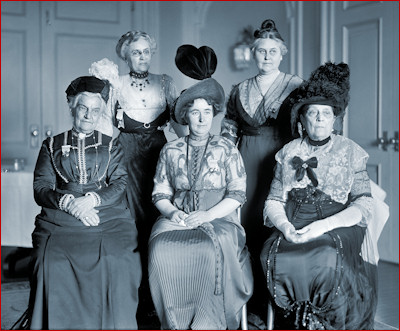by Frank Turk
Dear Dr. Carson & Dr. Keller --
As I begin to write this, I do so with a personal sense of indebtedness to both of you. I am not merely grateful for your books and lectures and sermons which have taught me so much: I am grateful for the spirit with which you have done it all. That is to say: while I am well-known through a reputation of being quite a pill for the sake of the Gospel, you both are known as fatherly men who have a graciousness I am certain I lack, and it is that spirit from which I learn much all the time.
Recently, you have both
penned a detailed statement about the nature of the Gospel Coalition, and about its duties or relationship to its readers and also its council members. I found this essay instructive, and useful, and clarifying in the context it was coming from, but in my view, it misses the point of the concerns of almost all the critics of the dust-up over the Elephant Room. I wanted to offer to you an outsider's perspective on what just happened and why it is not enough merely to say what you have said so far.
Let me start here: the internet is an astonishingly-big and astonishingly-tiny place. For example, this blog gets more readers daily that most pastors have to preach to on a weekly basis. We have the same reach on the internet as the Huffington Post (according to Technorati and Google, anyway) -- and yet I have only met a reader of this blog once in "real life" in a non-church setting. The people I work with have no idea I'm internationally known for talking about Jesus -- they only know me as a guy who is serious about his family, his church and his work (in that order), and who thinks Jesus is a real person. So when we think about what we are doing here, we have to keep it in the right perspective. On the one hand, we may be highly influential to a certain cadre of readers; on the other hand, we are not hardly Glenn Beck or Piers Morgan.
But we do influence others -- other Christians. It would be a particular sort of false humility to say that we didn't set out to do this in the first place. Of course we set out to influence people -- hopefully, for the better. The Gigabytes of resources on each of our sites speaks to this plainly -- your coalition, by assembling broadly like-minded influencers and authors and giving them an interconnected portal through which they can cross-pollinate and help others; our little gang of street fighters by speaking toward the prevailing church culture, against its excesses and foolishness, and with the love of Christ in its multifaceted brilliance -- in a way to cause offense, conviction, illumination, repentance, renewal, and finally joy.
To that end, I think it would only be through invincible ignorance that people reading this blog could not know where Dan, Phil and I stand on matters of first importance. And while we are not uniformly identical in convictions (for example, I am a-mil with post-mil sympathies; Dan and Phil are pre-mil with not much sympathy) [/joke], we all bend the same way and don't really have a lot of internal disagreements. But what we offer the blogosphere is a clarion call to what we believe -- and the open opportunity for any who disagree with us to disagree publicly, charitably, and for the sake of resolving the disconnect. We have even been known to apologize when it turned out that we (and by "we" I mean "me") were wrong about something.
Some people find this too tawdry. Many of them are people who, frankly, can't frame disagreement as anything except trying to destroy another person. Their refrain is universally, "you would be better off doing something else,
like ministry." Others on that side think disagreements ought to only be private things and cite the Gospel of Matthew while ignoring the book of Acts, the letter to the Galatians, Paul's instructions to Titus and Timothy, Jesus' interactions with his detractors, and so on. My fear is that you two fall into this camp, as implied by your recent essay.
See: that essay says a couple of things. The first is the interesting distinction between "a boundary-bounded set and a center-bounded set." This distinction is interesting as demonstrating kinds of unity, but I think this distinction always overlooks the problem that a center-bounded paradigm is never really center-bounded at all. You know: your explanation uses oversimplified examples of boundary-bounded sets and then compares that to the robust example of TGC which (you say) is center-bounded. But when you explain how the center-bounded criteria work out, it suspiciously looks more like a filter to keep out those with serious problems than it does like a center mass around which all of you orbit.
But you want to perceive yourselves and your organization as something which is, in the final account, attractional and not institutional or proscriptive -- so you describe yourself as center-bound. Fair enough, I guess.
But here's the second thing: as an attractional vehicle, you have drawn people in who, frankly, need you. They need the collected wisdom of your group, insofar as God has given it to you, to help them in their spiritual life. And to maintain your self-perception as center-bounded, as essentially attractional, you abhor real conflict. For example,
in the video where Mark Dever briefly discusses the pitfalls of multisite with Mark Driscoll and James MacDonald, it strikes me that they only agree to disagree because, it seems, this doesn't really matter. That is: the Bible is not very clear (apparently -- Driscoll's interrogative that "ecclesia" means "assembly" "according to who," as if someone said mother wears army boots, simply ridicules the idea that the NT speaks simply and clearly about the matter, denigrating the whole discussion with his characteristic application of humor) (Thx to Steve McCoy's insightful commentary on this video, btw) on what the local church is and is not as a community with any kind of polity. The video ends with a classic "agree-to-disagree" and leaves the matter unsettled -- and worse, because Dever is a kind soul, he allows himself to be denigrated by the other two for his biblical convictions.
The result, then, is that there is no real conflict and no resolution. To some, this is great -- because this is a secondary issue, these men of good faith do not have to convince each other, and the discussion is friendly, and we can see that somethings don't have to come to blows. Selah.
But let's hang on a second: if I give this video all the benefit of the doubt, and concede (for the sake of the blog post) that it doesn't matter if your local church is local, what have I actually learned here? Have I learned what to do when the actual essentials are at stake? Have I learned what to do with and for a brother who is publicly coming undone?
The answer, I am sure you can see, is no -- no, this does not instruct me on how to be a real brother to someone. It doesn't tell me how to live as if James 5 and Prov 27 are true. And let's face it: the problem with the internet is that someone on it is wrong!
Not just in the "fields of ripe heresy" sense of wrong: the internet is also wrong because it is filled with people who, in spite of a good core intention to expose heresy and false doctrine, don't really love anybody. They don't want good to come to those they think are getting it wrong. They want to call down fire on folks rather than call them to repent, forgetting that Jesus is Lord and Christ both in the Acts 2 definition and the Philippians 2 definition.
This is so critical, gentlemen: most people reading the internet for spiritual guidance are desperate for help. I think they really want to know better than they do. And they will learn something from the internet -- for good or for ill.
So they find
TeamPyro, or they find the Gospel Coalition, and they find other things, too. And in the last 4 weeks, they have found James MacDonald endorsing T.D. Jakes as a brother in Christ.
Now, fair is fair: he has recanted a lot of stuff, and with respect to your joint essay, I grasp and accept your point that endorsing someone and merely interviewing them are two different things. The White Horse Inn has interviewed skeptics and atheists and heretics, and nobody is calling for their resignation or expulsion from good company. But in this case, if what we were trying to do is learn Calculus or Trigonometry, a lot of the work is missing. We have a problem stated, and we have various statements that a solution was found, but getting from start to finish leaves the people who, attractionally, came to your site to learn about how this faith works, lost.
Now, here's what's not necessary: we don't need the reality TV version of whatever it is that has happened, is happening, and will happen between the various parties at TGC, including any trumped-up drama. But when someone publicly makes an error of this size, the broad stokes of the public resolution are, frankly, necessary for the sake of those you started your internet site up for in the first place.
For example: After the controversy broke out, James & Company at the Elephant Room revised the mission statement. No explanation, no comment that it was a good idea to reframe their approach. Certainly no insight into why it's easier to rewrite the statement than to rethink the invitation to Jakes. One day the mission statement was one thing, ad the next, it was significantly revised. There is a step missing there -- namely, why is this action more wise than, for example, revising the guest list. Mark Dever's name was removed from the list with no explanation -- is that relevant, or just a schedule conflict that can't be resolved? Thabiti Anyawbile wrote a brilliant plea against allowing Jakes to attend -- and there was no public response to it from MacDonald & Company. How does one process this? All the public activities are completely disconnected except by theme. There's no didactic or practical narrative to help the person you attracted in sort it all out.
For me, as an intermediate observer of the blogosphere and the internet, this is confusing at best. Imagine what it looks like to the person who is a rudimentary reader of the internet, and a novice at understanding the political dynamics of a group of men who, let's face it, are all kings in their own castles who are also, they all say, servants of Christ more than they are great men.
What is missing here is how to seek resolution of tough issues -- and how to read through an issue like this and both exercise good judgment and call back a brother who is making a critical error. And of all the people who are on the internet, it has to be said that you two are the best equipped and the best suited to help the rest of us out.
Saying what you might do is an interesting approach -- and it is the approach of the essay you have already written. But showing the rest of us how to actually do it would be invaluable. It would actually put into play something the Evangelical church lacks -- an education on how to exercise spiritual responsibility, and turn a brother away from wrong-doing and toward the right path, the right orbit in our center-bounded life which is around Christ.
So I ask you as a fan, and as your far-removed student, and as a Christian who is indebted to you: help us understand how to resolve this matter. Please do not let the weak single tweet from James MacDonald that the parties #AgreeToDisagree stand as the milestone to this event. That activity would be helpful to so many people for so many reasons that they cannot all be listed, but the one most important must be said: it will glorify Christ.
My thanks for reading this note, which is already too long. May God richly bless you, and may your reward in him be great.




 he reason why men forsake truth for error is, that they have not really understood that truth, in nine cases out of ten they have not embraced it with enlightened minds.
he reason why men forsake truth for error is, that they have not really understood that truth, in nine cases out of ten they have not embraced it with enlightened minds.













 he following video (40+ minutes) is from the recent Psalm 119 Conference in Keller, TX, sponsored by "Wretched," featuring Todd ("Freakishly Tall") Friel. Todd dragged me on stage to discuss the Elephant Room and other issues related to wall-building, biblical discernment, bad discernment ministries, shrill-and-sharp-tongued women who fancy themselves called to ministries of full-time criticism—and a few other interesting topics:
he following video (40+ minutes) is from the recent Psalm 119 Conference in Keller, TX, sponsored by "Wretched," featuring Todd ("Freakishly Tall") Friel. Todd dragged me on stage to discuss the Elephant Room and other issues related to wall-building, biblical discernment, bad discernment ministries, shrill-and-sharp-tongued women who fancy themselves called to ministries of full-time criticism—and a few other interesting topics:

 here are seasons when the professing church undergoes fearful trials. She suffered in olden times the ordeal of persecution. Edicts and writs were issued, forbidding all worship in the name of Jesus; cruel penalties were the reward of those who were faithful to the doctrine of the cross. The rough wind howled dreadfully; but the result was that the church, which had been overgrown with hypocrisy, was speedily freed from pretenders; and only those remained whose faith could bear the fire.
here are seasons when the professing church undergoes fearful trials. She suffered in olden times the ordeal of persecution. Edicts and writs were issued, forbidding all worship in the name of Jesus; cruel penalties were the reward of those who were faithful to the doctrine of the cross. The rough wind howled dreadfully; but the result was that the church, which had been overgrown with hypocrisy, was speedily freed from pretenders; and only those remained whose faith could bear the fire.












 here is one only message from God, of good news to men; and if you turn away from that, you turn away to a falsehood, to that which will bring you trouble, to that which will pervert you, and lead you astray.
here is one only message from God, of good news to men; and if you turn away from that, you turn away to a falsehood, to that which will bring you trouble, to that which will pervert you, and lead you astray.
 everal years ago, whan I was still fairly new to the blogosphere, our friends at
everal years ago, whan I was still fairly new to the blogosphere, our friends at 












